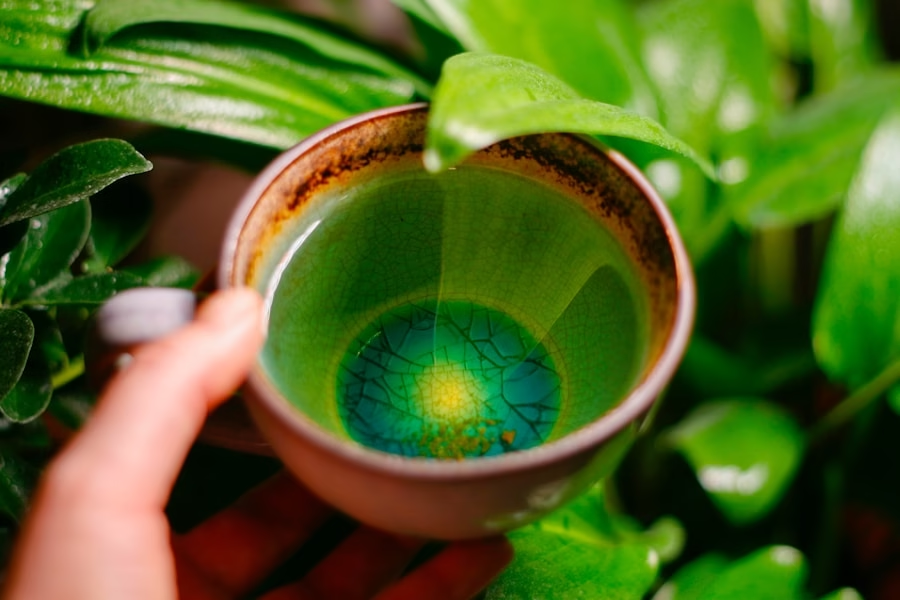Natural spring water is water that comes from an underground source and flows naturally to the earth’s surface. It is often considered to be some of the purest and cleanest water available, as it is filtered through layers of rock and soil, which helps to remove impurities and contaminants. Natural spring water is typically high in minerals, such as calcium, magnesium, and potassium, which can provide additional health benefits. It is also known for its crisp, refreshing taste, making it a popular choice for those looking for a high-quality drinking water option.
In order to be classified as natural spring water, the water must meet certain criteria set by the U.S. Food and Drug Administration (FDA). This includes being collected at the spring or through a borehole tapping the underground source, and meeting specific mineral and chemical composition standards. Natural spring water is often bottled at the source and sold in stores, making it easily accessible to consumers looking for a healthy and refreshing beverage option.
Natural spring water has been enjoyed for centuries for its purity and taste, and continues to be a popular choice for those looking for a high-quality drinking water option. Its unique mineral composition and refreshing taste make it a favorite among consumers who are looking for a healthy and natural beverage option.
The Rise of Prebiotic-Enriched Spring Water: What Are Prebiotics and How Are They Added?
Prebiotic-enriched spring water is a relatively new product that has been gaining popularity in recent years. Prebiotics are non-digestible fibers that promote the growth of beneficial bacteria in the gut. They are found naturally in certain foods, such as bananas, onions, and garlic, and are known for their ability to support digestive health and overall well-being. In prebiotic-enriched spring water, these fibers are added to the water to provide an additional health benefit to consumers.
The prebiotics are typically added to the spring water during the bottling process, ensuring that they are evenly distributed throughout the product. This allows consumers to enjoy the benefits of prebiotics in a convenient and refreshing beverage option. Prebiotic-enriched spring water is often marketed as a way to support digestive health and promote overall well-being, making it an attractive option for those looking for a functional beverage that goes beyond basic hydration.
Prebiotic-enriched spring water is a relatively new product that has been gaining popularity in recent years. By adding prebiotics to natural spring water, manufacturers are able to offer consumers a convenient and refreshing way to support digestive health and overall well-being. This innovative product has the potential to provide consumers with an easy way to incorporate prebiotics into their daily routine, making it an attractive option for those looking for a functional beverage that goes beyond basic hydration.
Health Benefits of Natural Spring Water: What Does Research Say?
Research has shown that natural spring water may offer several health benefits due to its unique mineral composition. For example, studies have suggested that the minerals found in natural spring water, such as calcium and magnesium, may help to support bone health and reduce the risk of osteoporosis. Additionally, the high mineral content of natural spring water may also help to support cardiovascular health by reducing the risk of high blood pressure and heart disease.
Furthermore, natural spring water is often free from contaminants commonly found in tap water, such as chlorine and lead, making it a safer and healthier option for hydration. This can be particularly beneficial for those with compromised immune systems or sensitivities to certain chemicals. Overall, research suggests that natural spring water may offer several health benefits due to its purity, mineral content, and lack of contaminants.
In addition to its mineral content and purity, natural spring water is also known for its crisp, refreshing taste, making it an enjoyable beverage option for many consumers. Its unique combination of health benefits and taste make it a popular choice for those looking for a high-quality drinking water option.
Potential Health Benefits of Prebiotic-Enriched Spring Water: What Are the Claims?
The potential health benefits of prebiotic-enriched spring water are based on the idea that prebiotics can support digestive health by promoting the growth of beneficial bacteria in the gut. This can help to improve digestion, support immune function, and reduce the risk of certain digestive disorders. Additionally, some research suggests that prebiotics may also have a positive impact on mental health by supporting the gut-brain axis.
While the specific health claims associated with prebiotic-enriched spring water may vary by brand, many manufacturers market their products as a way to support overall well-being through improved digestive health. However, it’s important to note that more research is needed to fully understand the potential health benefits of prebiotic-enriched spring water. As with any functional beverage, consumers should carefully consider the evidence supporting these claims before incorporating prebiotic-enriched spring water into their daily routine.
Overall, the potential health benefits of prebiotic-enriched spring water are based on the idea that prebiotics can support digestive health and overall well-being. While more research is needed to fully understand these potential benefits, many consumers are drawn to this innovative product as a convenient way to incorporate prebiotics into their daily routine.
Comparing Nutritional Content: How Do Natural and Prebiotic-Enriched Spring Waters Differ?
When comparing the nutritional content of natural spring water and prebiotic-enriched spring water, there are several key differences to consider. Natural spring water is known for its high mineral content, including calcium, magnesium, and potassium, which can provide additional health benefits such as supporting bone health and cardiovascular function. On the other hand, prebiotic-enriched spring water contains added prebiotic fibers, which are known for their ability to support digestive health and overall well-being.
In terms of calorie content, both natural spring water and prebiotic-enriched spring water are typically calorie-free, making them a healthy beverage option for those looking to maintain or lose weight. However, it’s important to note that some prebiotic-enriched spring waters may contain added sugars or flavors to enhance taste, which can increase calorie content. When comparing nutritional content, consumers should carefully review product labels to ensure they are choosing a beverage that aligns with their dietary preferences and needs.
Overall, while both natural spring water and prebiotic-enriched spring water offer unique nutritional benefits, there are key differences in their mineral content and added ingredients. Consumers should carefully consider these differences when choosing a beverage option that best suits their individual health goals and preferences.
Consumer Considerations: Which Type of Spring Water is Right for You?
When considering which type of spring water is right for you, there are several factors to take into account. If you are primarily looking for a high-quality drinking water option with a crisp, refreshing taste and added mineral benefits, natural spring water may be the best choice for you. Its purity and mineral content make it an attractive option for those looking for a healthy and natural beverage option.
On the other hand, if you are interested in supporting digestive health and overall well-being through added prebiotic fibers, prebiotic-enriched spring water may be a better fit for your needs. This innovative product offers an easy way to incorporate prebiotics into your daily routine while enjoying the refreshing taste of natural spring water.
Ultimately, the type of spring water that is right for you will depend on your individual health goals and preferences. Whether you are looking for added mineral benefits or digestive support, both natural spring water and prebiotic-enriched spring water offer unique advantages that can contribute to a healthy lifestyle.
Exploring the Potential Benefits of Natural and Prebiotic-Enriched Spring Water
In conclusion, natural spring water has been enjoyed for centuries for its purity, mineral content, and refreshing taste. Research suggests that it may offer several health benefits, including supporting bone health, cardiovascular function, and overall well-being. On the other hand, prebiotic-enriched spring water is a relatively new product that offers added digestive support through the inclusion of prebiotic fibers.
While more research is needed to fully understand the potential health benefits of prebiotic-enriched spring water, both natural spring water and prebiotic-enriched spring water offer unique advantages that can contribute to a healthy lifestyle. Whether you are looking for added mineral benefits or digestive support, both options provide a convenient and refreshing way to stay hydrated while supporting your overall well-being. Ultimately, the type of spring water that is right for you will depend on your individual health goals and preferences. By carefully considering the potential benefits of each option, you can make an informed decision about which type of spring water best suits your needs.




